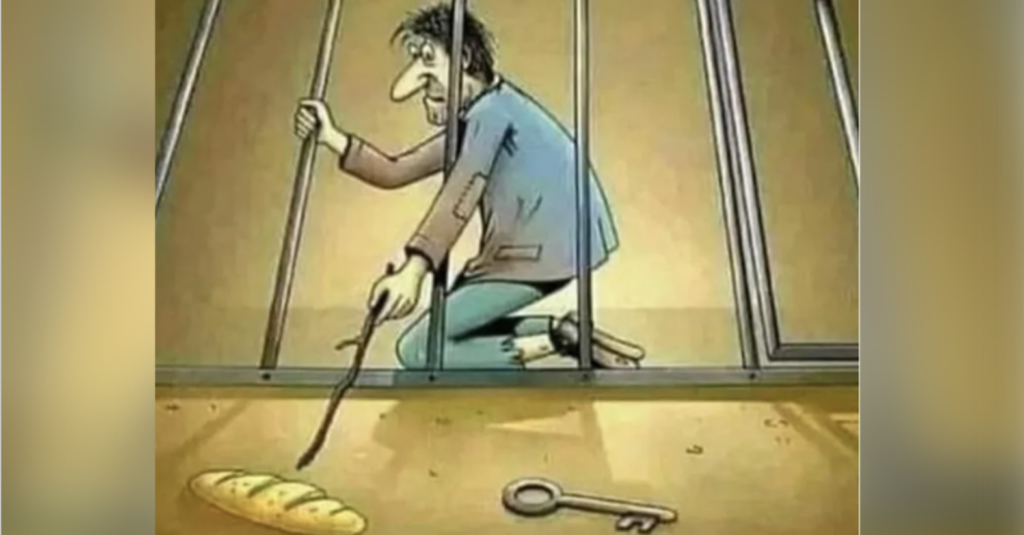If you’ve pondered this conundrum, you’re engaging in a philosophical exercise. The prisoner had a clear opportunity to escape but chose not to take it. Why?
In the famous parable “The Prisoner and the Bread,” a prisoner is left alone in a cell with two options: a loaf of bread and a key that could unlock his freedom. It’s a seemingly straightforward choice, yet the prisoner chooses the bread. This decision has puzzled many, sparking debates about survival, instinct, and human nature.
The Dilemma of Choice
Presented with two starkly different options, the prisoner faces a profound dilemma. The key symbolizes freedom, yet the prisoner hesitates. He doesn’t know if he can successfully use the key or what dangers might lie beyond the prison walls. After much deliberation, he opts for the bread.
Evaluating Survival and Security
When evaluating their options, prisoners must weigh immediate survival against the uncertain prospects of escape. The decision to choose bread over the key has been a topic of great philosophical discussion, originating with the Greek philosopher Plutarch. The choice, at its core, reflects a fundamental survival instinct.
While the key offers a chance at freedom, it also presents significant risks. Without a clear escape plan, the chances of encountering insurmountable obstacles such as guards or additional barriers are high. On the other hand, bread provides immediate nourishment, ensuring survival in the short term, which might be a more pressing need.

Immediate Needs vs. Long-Term Goals
For a prisoner, the immediate need for sustenance can outweigh the long-term goal of escape. Bread not only sustains life but can also serve as a form of currency within the prison environment. It can be used to bribe guards or trade for other necessities, potentially aiding in a more thought-out escape plan. Thus, the choice of bread over the key can be seen as a pragmatic decision.
Philosophical Insights and Practical Wisdom
The decision between bread and the key highlights the importance of understanding one’s limitations and making use of available resources. It underscores the value of immediate, tangible benefits over uncertain future gains.
In conclusion, the prisoner’s choice reflects a deep-seated survival instinct and a pragmatic approach to immediate needs. While freedom is the ultimate goal, ensuring survival in the present moment often takes precedence. This parable invites us to reflect on our own decision-making processes, reminding us that sometimes, the most sensible choice is the one that meets our immediate needs and secures our survival.
